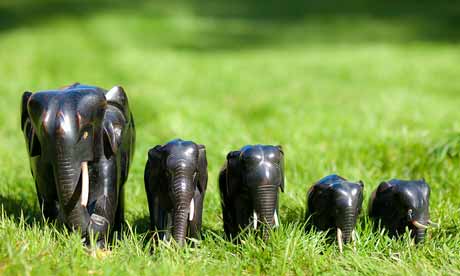
Going undercover with the Lusaka Agreement Task Force on the Kenya-Tanzania border highlights the ongoing hazards of a very old problem
I’ve just returned from east Africa, where I’ve been working undercover with agents from the Lusaka Agreement Task Force, established to fight illegal wildlife trade across Africa’s borders. It was a fairly daunting few days and, having witnessed first-hand the astonishing efforts being made to protect the region’s wildlife, I’ll never again take a safari for granted.
On one undercover operation, we were just a short drive from several popular tourist lodges. Four of us sat at a rickety wooden table in a run-down café on the Kenya-Tanzania border, in the shadow of Mount Kilimanjaro. Next to me was a senior undercover agent from the Task Force. Heavily scarred from many previous encounters with poachers, he had a pistol tucked into the back of his trousers, hidden under his shirt.
Two men sat opposite: members of the Luo tribe, acting as brokers for some Maasai warriors who wanted to sell 11 pieces of ivory weighing about 150kg. I still don’t know if they were armed. I was posing as an ivory dealer. We had told them, in a mixture of English and Swahili, that I was a South African UN worker using my diplomatic privileges to smuggle ivory out of the country.
We talked for an hour and a half. They wanted to do the deal in the bush, about 35km away, at night. We refused. It was too dangerous – in the dark it would be impossible to evaluate how heavily they were armed and how many men were hiding in the bushes. We told them we were tired after the long journey from Nairobi and, eventually, they relented. They would call us first thing in the morning and arrange to meet.
I was up and ready at 5.00am, waiting for the call. It never came. Eleven hours later I was still waiting, in my grubby, £5-a-night so-called hotel room, trying to resist calling them to find out what was happening. Another undercover agent, posing as a scout for ivory buyers, had been working on this bust for more than a week. This would be no small haul and we couldn’t afford to muck it up – 150kg of ivory represents up to ten dead elephants.
The proposed deal was going to be fairly typical. The poachers wanted immediate payment – as soon as we’d seen the ivory – of about £500. That’s big money for a couple of Maasai poachers. They wanted £2,400, although they knew we were unlikely to pay more than half that amount.
Then it was dark. I was sitting in my room at about 7.15pm when there was a knock on the door. It was the senior undercover agent and two of his colleagues from the Kenya Wildlife Service. The brokers had finally made contact. There was no power in the hotel, so we sat in the darkness and discussed the latest conversation. The situation, apparently, had changed.
Instead of two Maasai poachers, there were now six. And they were still insisting on doing the exchange in the middle of nowhere, later that night. The undercover agents were on edge. They were making me nervous.
We called the brokers and, after long discussions, agreed to inspect the ivory at first light. But there was no ivory. The poachers were there when we arrived but, for some reason, were convinced we were being watched. The deal was off. The agents took it in their stride; it’s all part of the job.
I’ve since received an email from the senior undercover agent. The ivory is still for sale and he has managed to re-open negotiations. As I write, safe in England and relieved to have survived my few days of undercover work, he and his men are on their way back to that run-down café on the Kenya-Tanzania border. I can’t stop thinking about them – risking their lives to snare the poachers.